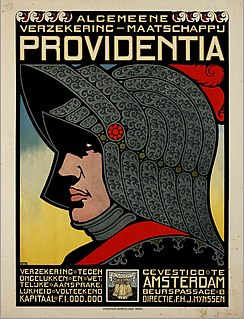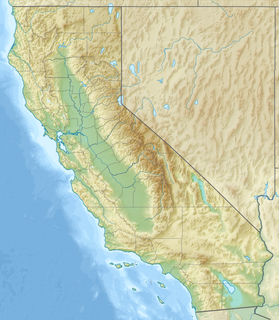 | |
| Mutual society | |
| Industry | Insurance |
| Fate | Acquired by Commercial Union |
| Successor | Aviva plc |
| Founded | 1696 |
| Defunct | 1905 |
| Headquarters | London, UK |
The Hand in Hand Fire & Life Insurance Society was one of the oldest British insurance companies.
 | |
| Mutual society | |
| Industry | Insurance |
| Fate | Acquired by Commercial Union |
| Successor | Aviva plc |
| Founded | 1696 |
| Defunct | 1905 |
| Headquarters | London, UK |
The Hand in Hand Fire & Life Insurance Society was one of the oldest British insurance companies.
The company was founded in 1696 at Tom's Coffee House in St Martin's Lane in London. [1] It was one of three fire insurance companies started after the Great Fire of London, [2] and it was initially called the Contributors for Insuring Houses, Chambers or Rooms from Loss by Fire, by Amicable Contribution. [3] In 1905, the Hand in Hand was acquired by the Commercial Union Group. [4]

Insurance is a means of protection from financial loss. It is a form of risk management, primarily used to hedge against the risk of a contingent or uncertain loss.

Nicholas Barbon was an English economist, physician, and financial speculator. Critics of mercantilism consider him to be one of the first proponents of the free market. In the aftermath of the Great Fire of London, he also helped to pioneer fire insurance and was a leading player in the reconstruction work—although his buildings were planned and erected primarily for his own financial gain. His purported baptismal name–"If-Jesus-Christ-had-not-died-for-thee-thou-hadst-been-damned"–was given to him by his Fifth Monarchist father and is an example of a hortatory name: religious "slogan names" were sometimes given in Dissenting families in 17th-century England. "He was unique in the unscrupulousness and brazenness of his business tactics" and his contemporary Roger North, who studied his dealings and interviewed him on the subject, called him "an exquisite mob master" in recognition of his ability to manipulate people to carry out his schemes.

Prudential plc is a British multinational life insurance and financial services company headquartered in London, United Kingdom. It was founded in London in May 1848 to provide loans to professional and working people.
Norwich Union was the name of insurance company Aviva's British arm before June 2009. It was originally established in 1797. It was listed on the London Stock Exchange and was once a constituent of the FTSE 100 Index.

Property insurance provides protection against most risks to property, such as fire, theft and some weather damage. This includes specialized forms of insurance such as fire insurance, flood insurance, earthquake insurance, home insurance, or boiler insurance. Property is insured in two main ways—open perils and named perils.
The Chartered Insurance Institute is a professional body for the insurance sector. The CII's purpose, as set out in its 1912 royal charter, is to 'Secure and justify the confidence of the public' in its members and the insurance sector as a whole. It aims to do this through setting standards of integrity, technical competence and business capability.

Fire insurance marks are metal plaques marked with the emblem of the insurance company which were affixed to the front of insured buildings as a guide to the insurance company's fire brigade. These identification marks were used in the eighteenth and nineteenth century in the days before municipal fire services were formed. The UK marks are called 'Fire insurance plaques'.
Charles Fowler was an English architect, born and baptised at Cullompton, Devon. He is especially noted for his design of market buildings, including Covent Garden Market in London.

Erie Insurance is a publicly held insurance company, offering auto, home, commercial and life insurance through a network of independent insurance agents. As of 2019, Erie Insurance Group is ranked 381st among the largest public U.S. companies, in terms of revenue, by Fortune magazine.

The history of organized firefighting began in ancient Rome while under the rule of Augustus. Prior to that, Ctesibius, a Greek citizen of Alexandria, developed the first fire pump in the third century BC, which was later improved upon in a design by Hero of Alexandria in the first century BC.

The history of fire brigades in the United Kingdom charts the development of fire services in the United Kingdom from the creation of the United Kingdom to the present day.
Liverpool Victoria, trading, since May 2007, as LV=, is one of the United Kingdom's largest insurance companies with over five million customers. It offers a range of insurance and retirement products.

Commercial Union plc was a large insurance business based in London. It merged with General Accident in 1998 to form CGU plc.

The history of insurance traces the development of the modern business of insurance against risks, especially regarding cargo, property, death, automobile accidents, and medical treatment.

The 1906 San Francisco earthquake struck the coast of Northern California at 5:12 a.m. on Wednesday, April 18 with an estimated moment magnitude of 7.9 and a maximum Mercalli intensity of XI (Extreme). High-intensity shaking was felt from Eureka on the North Coast to the Salinas Valley, an agricultural region to the south of the San Francisco Bay Area. Devastating fires soon broke out in the city and lasted for several days. More than 3,000 people died. Over 80% of the city of San Francisco was destroyed. The events are remembered as one of the worst and deadliest earthquakes in the history of the United States. The death toll remains the greatest loss of life from a natural disaster in California's history and high on the lists of American disasters.

Sir Samuel Bignold DL was a British businessman with insurances and Conservative politician.
Cornelius Walford (1827–1885), was an English writer on insurance.

SunLife Ltd is a UK-based financial services company. Founded in 1810, the company is best known for its range of services for people aged 50 and over.

The 1861 Tooley Street fire, also called the Great Fire of Tooley Street, started in Cotton's Wharf on Tooley Street, London, England, on 22 June 1861. The fire lasted for two weeks, and caused £2 million worth of damage. During the fire, James Braidwood, superintendent of the London Fire Engine Establishment, was killed. House of Commons reports cited multiple failures in fire prevention, and the fire led to the 1865 Metropolitan Fire Brigade Act, which established the London Fire Brigade.
Charles Povey was a British pamphleteer and entrepreneur, who challenged the Royal Mail's postal monopoly by running the "Halfpenny Carriage", a local London postal system similar to William Dockwra's Penny Post. He founded the first joint-stock company for fire insurance, the Exchange House Fire Office later the "Sun Fire Office" that remains in business today as the RSA Insurance Group.